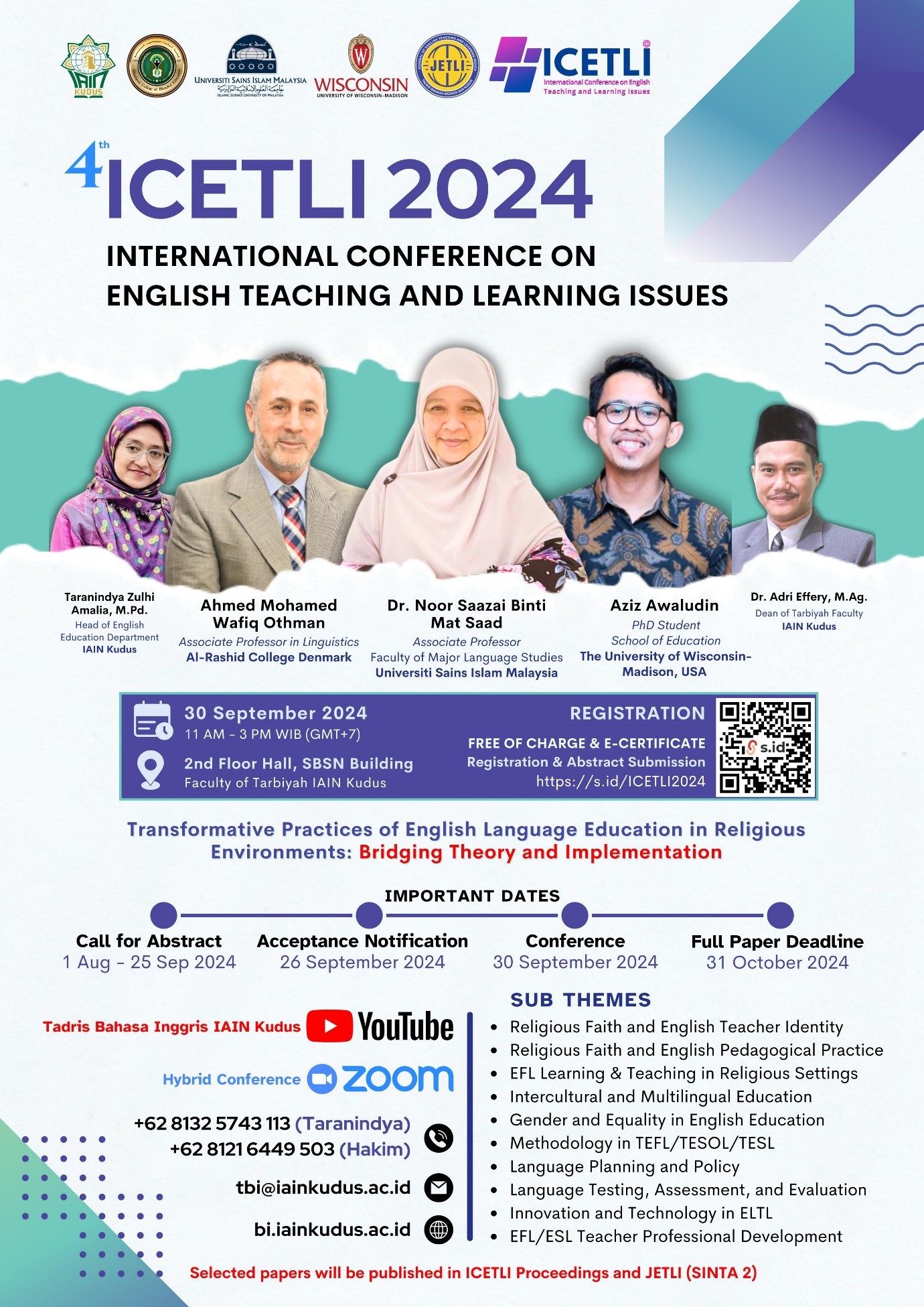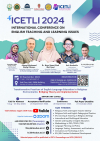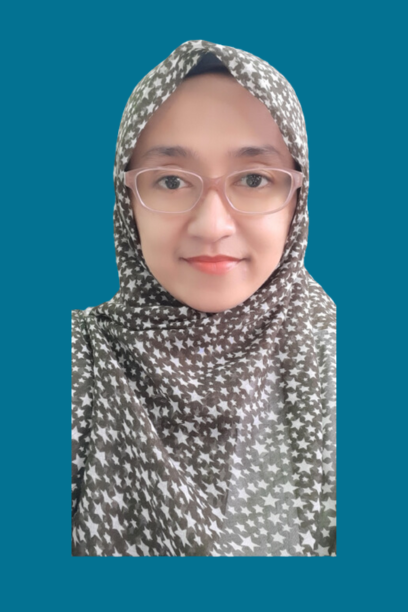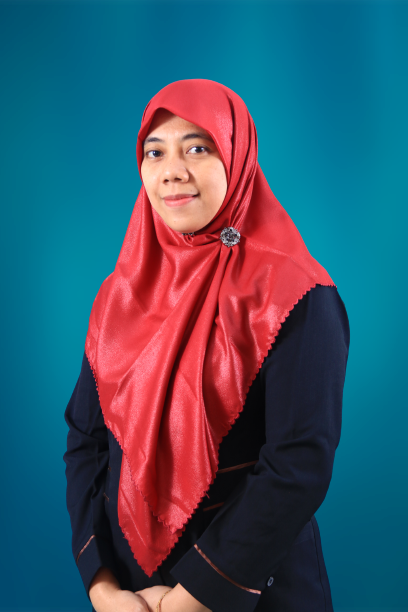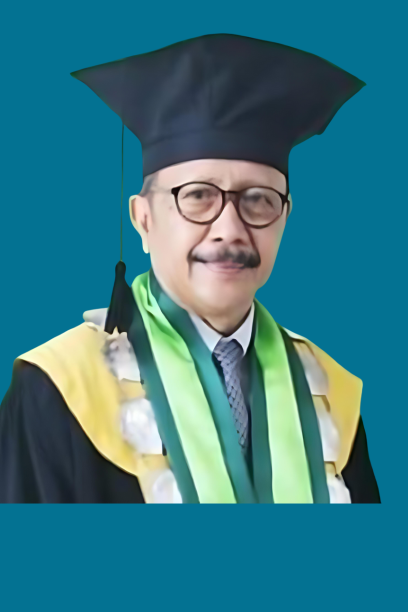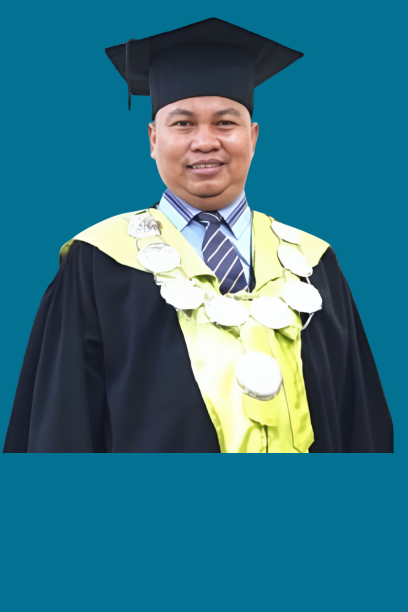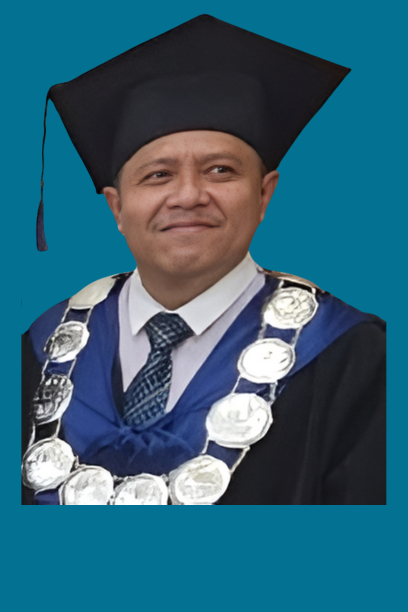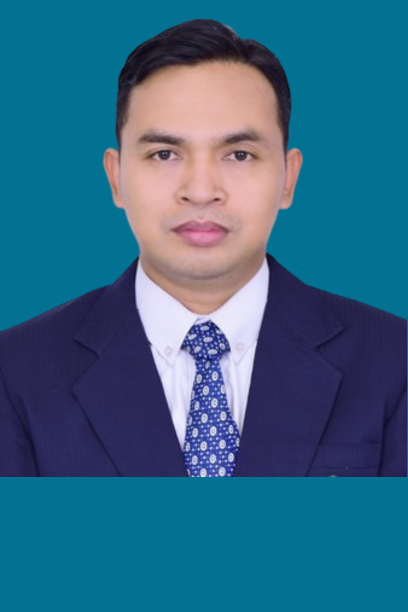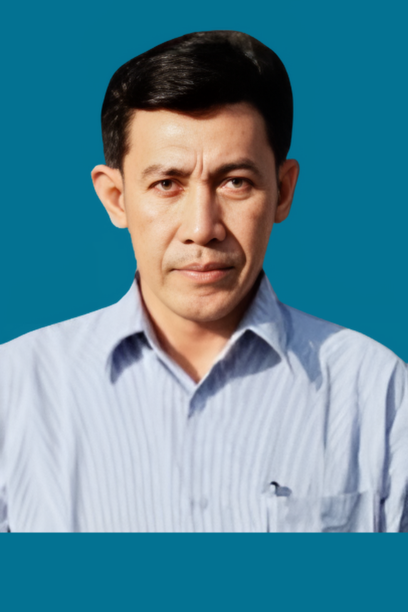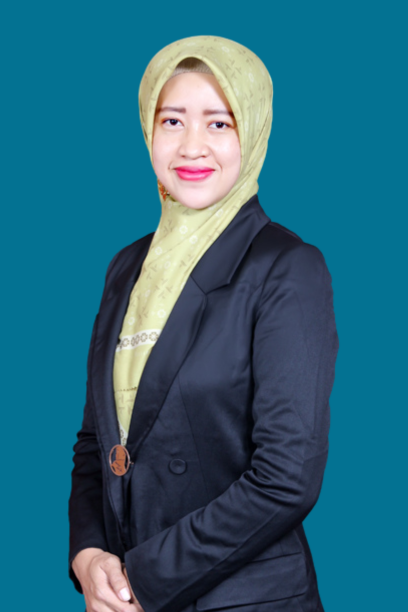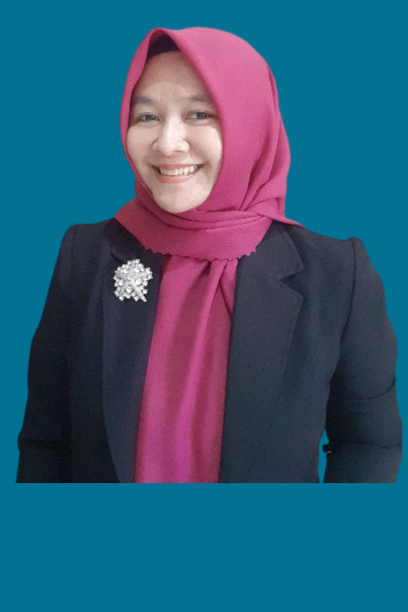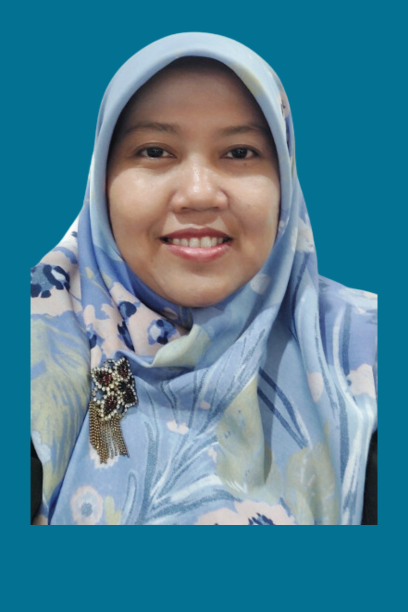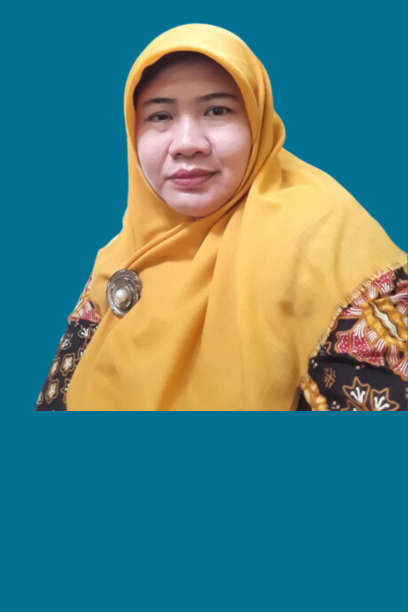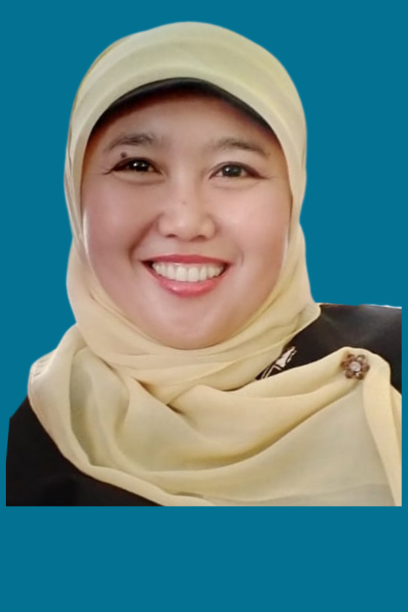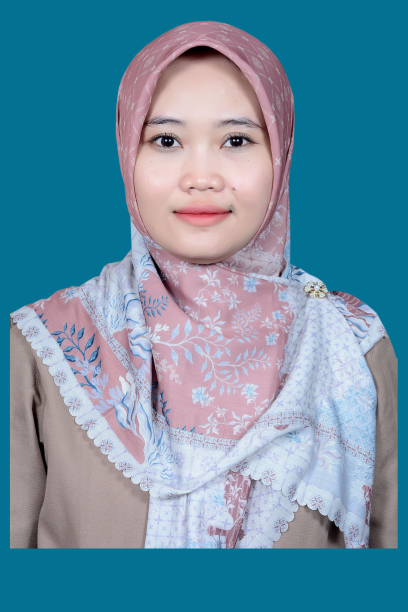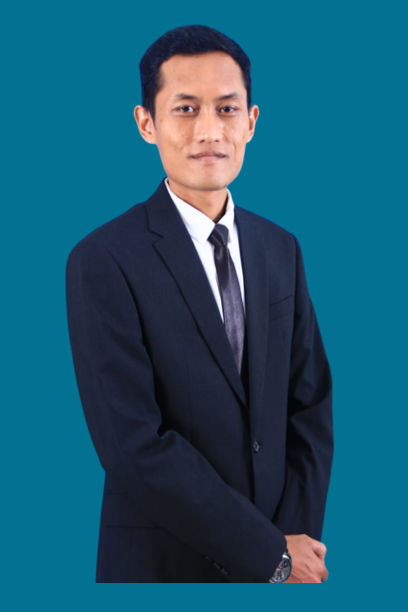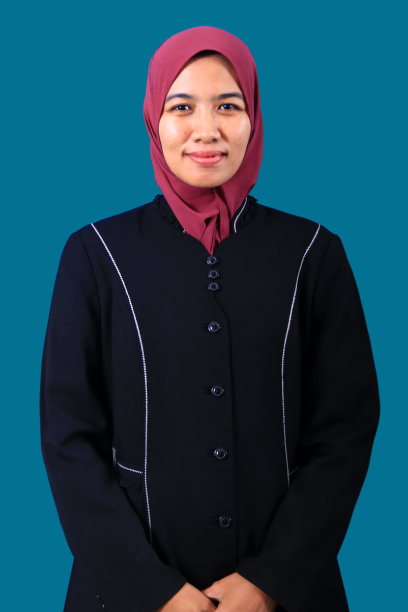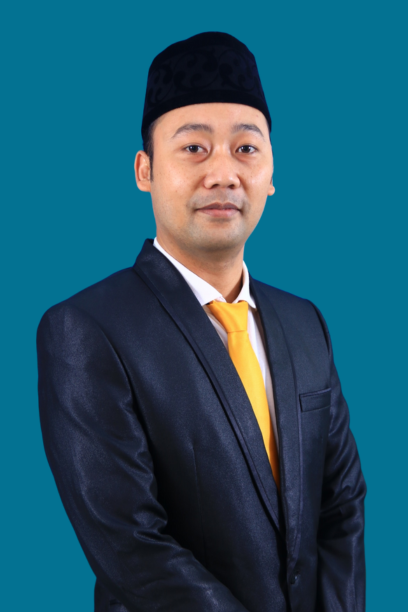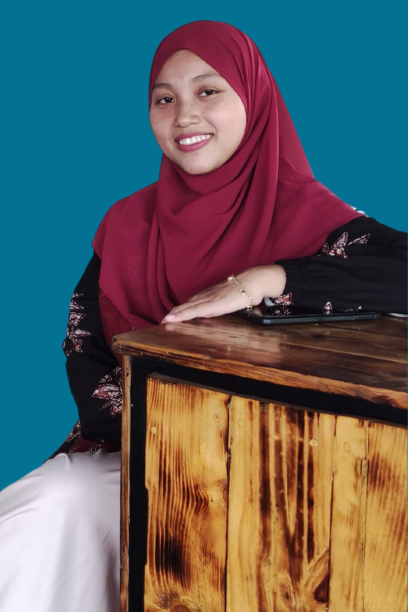IAIN Kudus Hosts Insightful Conference on English Education in Religious Settings
On September 30, 2024, from 9 AM to 11 PM (GMT+7), the International Conference on English Teaching and Learning Issues (ICETLI) 2024 was held at the SBSN Building, IAIN Kudus. This conference, themed “Transformative Practices of English Language Education in Religious Environments: Bridging Theory and Implementation,” sparked engaging conversations among participants and academics. Featuring renowned international speakers, the event provided an opportunity to explore the relationship between language education and religious values, particularly in Islamic contexts.


The event, moderated by Muhammad Arif Al Hakim, M.TESOL, and Taranindya Zulhi Amalia, M.Pd., brought together distinguished speakers from various corners of the globe. Among them were Assoc. Prof. Ahmed Mohammed Wafiq Othman from Denmark, Assoc. Prof. Dr. Noor Sazai Binti Mat Saad from Universiti Sains Islam Malaysia, and Aziz Awwaludin, M.Ed., a PhD student from the University of Wisconsin-Madison.
Aziz Awwaludin opened the presentation sessions with his cutting-edge research on “Exploring a Century of Development in English Education Research (1928-2024).” His presentation used bibliometric and topic modeling analysis to map the evolution of English education. What made his talk stand out was the application of machine learning tools like R software and ChatGPT in education research. He provided valuable insights on how data from Scopus was utilized to track trends in the field and predict future trajectories. His work highlighted the most influential documents, authors, and sources that shaped English education over the past century.
Awwaludin noted, “By exploring such a wide range of literature, we can better understand how English education has evolved globally, which will undoubtedly inform future teaching practices, particularly in Islamic settings.” His research serves as a bridge between data science and educational theory, providing fresh perspectives for educators.
The next presentation was delivered by Assoc. Prof. Ahmed Mohammed Wafiq Othman, focuses on transformative practices in English language education. His research delved into how these practices can enhance critical thinking and communication skills among learners in religious settings. Through case studies, he demonstrated how discussions on religious values, such as ethics and tolerance, can be integrated into English learning.
A key takeaway from his presentation was that transformative practices enable students to connect their religious identity with language learning. Othman emphasized that students who engaged in these transformative methods became more confident in using English to express religious beliefs, deepening both their linguistic and spiritual understanding.
“Education should not be limited to language acquisition,” said Othman. “It should inspire students to think critically about their values and how they express them, even in a second language.”

In the final presentation, Assoc. Prof. Dr. Noor Sazai Binti Mat Saad from Universiti Sains Islam Malaysia (USIM) introduced the innovative INAQ approach. INAQ, or the Integration of Naqli (Islamic revealed knowledge) and Aqli (worldly knowledge), provides a distinctive framework for embedding Islamic teachings into English language lessons. Dr. Sazai highlighted how this approach is being implemented in USIM, where students from religious schools are given opportunities to explore subjects like ethics and social justice through English.
Dr. Sazai explained that incorporating Islamic elements into assignments helps students engage more deeply with both the language and their religious values. For example, students working on argumentative essays are required to include supporting evidence from the Quran or other religious texts. This method not only improves their academic performance but also strengthens their cultural and religious identities.
Despite the successes, Dr. Sazai acknowledged several challenges in implementing the INAQ approach, particularly in research and assignment accuracy. However, she remains optimistic about the future, stating, “With more collaboration and research, we can refine the INAQ model and expand its benefits to a broader audience.”

The ICETLI 2024 conference provided a rich exchange of ideas, bridging the gap between theory and practice in English language teaching, especially within religious environments. Integrating religious values into language learning is paving the way for a more holistic educational experience that nurtures academic and spiritual growth.

 Indonesia
Indonesia  English
English  Arabic
Arabic 
